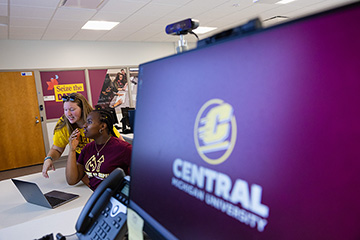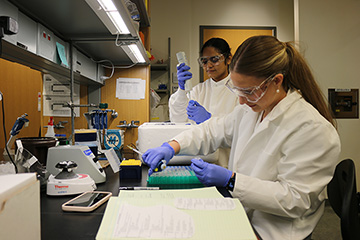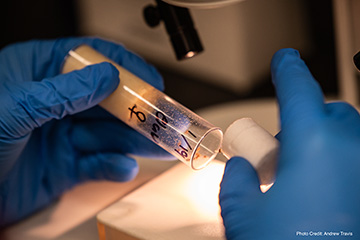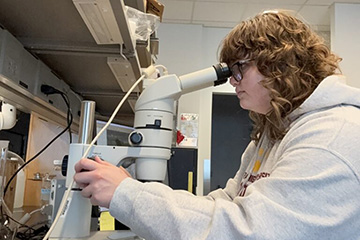CMU researchers dive into Bolivian water woes
When whispers of poor water quality reached Central Michigan University's ears, there was no hesitating. With Itzel Marquez from the School of Engineering and Technology leading the charge, Marquez and CMU undergraduate Maxwell Hornak (with support faculty from the Department of Chemistry and Biochemistry and The Department of Philosophy, Anthropology and Religion) geared up for an expedition to Copacabana, Bolivia.
Their mission? To unravel the mysteries behind the questionable water quality. Armed with samples and fueled by determination, the team conducted initial tests, hinting at a deeper problem that begged for further exploration.
Touching down in Bolivia, they hit the ground running, conducting field tests to size up the situation firsthand. But, alas, the lack of proper lab gear meant they had to pack up some samples for a more detailed analysis back at CMU.
"One of our own sounded the alarm about water quality in Copacabana," shared Hornak. "So, we grabbed our gear, dove into the issue, and are gearing up to share our findings far and wide."
Their findings? Eye-opening, to say the least. The water wasn't just murky; it was rife with challenges like hardness, total dissolved solids, and chloride ions. Working hand in hand with local water treatment plant crews, they cracked open a treasure trove of insights, prompting them to widen their research horizons.
In a heartwarming twist, the team joined forces with CMU chemistry faculty member Dr. Dale Lecaptain's startup, H2OQ, to arm a local school with water quality analysis tools. It wasn't just about solving problems; it was about empowering the next generation to be stewards of their environment.
As Hornak put it, "The best part? Immersing ourselves in Bolivian culture. From living with locals to savoring their cuisine, it wasn't just about science; it was about forging connections and sharing experiences."
Now back at CMU, they're itching to dive into the data, with plans to tackle solutions to the area’s water woes. Their journey may have ended, but the impact? That's just beginning.




